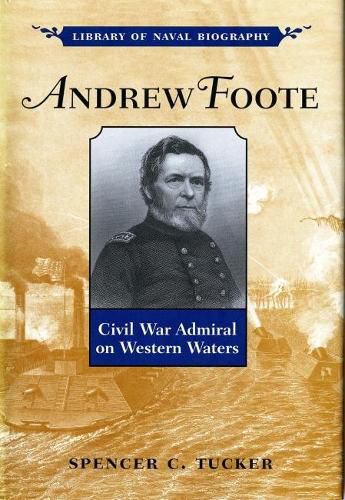Readings Newsletter
Become a Readings Member to make your shopping experience even easier.
Sign in or sign up for free!
You’re not far away from qualifying for FREE standard shipping within Australia
You’ve qualified for FREE standard shipping within Australia
The cart is loading…






This biography traces the life and career of one of the U.S. Navy’s first admirals, Andrew Hull Foote. As flag officer of the Union’s western naval forces, Foote was a key figure in the February 1862 Union victories at Forts Henry and Donelson in Tennessee and helped open the Confederate heartland to the Union. Later he shared in the victory at Island No. 10, an action that opened the upper Mississippi River to the Union.
In this revealing portrait, Spencer Tucker describes Foote as emblematic of a period of great change in the American navy. Although very much an officer schooled in the tradition of the Old Navy, Foote considered himself first and foremost a staunch Christian and agent of Divine Will. An ardent social reformer, he crusaded zealously for abolition of the daily grog ration in the navy, and during his command of the brig Perry in the African squadron, he also became a leading advocate of the government’s use of forceful measures to end the slave trade. In the 1850s Foote’s career exemplified America’s emerging international policy in the Far East when, in support of U.S. interests in China, he led a shore party to destroy coastal forts that had fired on U.S. ships. The first study of the admiral to be published in more than one hundred years, this work makes an important contribution to the literature of the period and to the series.
$9.00 standard shipping within Australia
FREE standard shipping within Australia for orders over $100.00
Express & International shipping calculated at checkout
This biography traces the life and career of one of the U.S. Navy’s first admirals, Andrew Hull Foote. As flag officer of the Union’s western naval forces, Foote was a key figure in the February 1862 Union victories at Forts Henry and Donelson in Tennessee and helped open the Confederate heartland to the Union. Later he shared in the victory at Island No. 10, an action that opened the upper Mississippi River to the Union.
In this revealing portrait, Spencer Tucker describes Foote as emblematic of a period of great change in the American navy. Although very much an officer schooled in the tradition of the Old Navy, Foote considered himself first and foremost a staunch Christian and agent of Divine Will. An ardent social reformer, he crusaded zealously for abolition of the daily grog ration in the navy, and during his command of the brig Perry in the African squadron, he also became a leading advocate of the government’s use of forceful measures to end the slave trade. In the 1850s Foote’s career exemplified America’s emerging international policy in the Far East when, in support of U.S. interests in China, he led a shore party to destroy coastal forts that had fired on U.S. ships. The first study of the admiral to be published in more than one hundred years, this work makes an important contribution to the literature of the period and to the series.